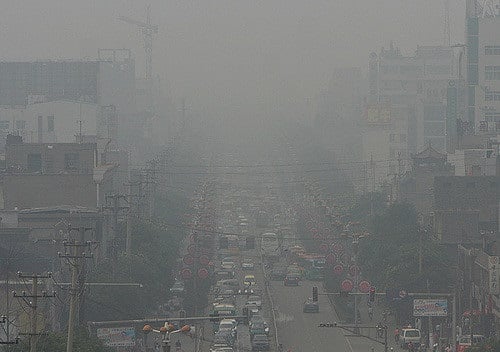Pollution is usually thought of by most as a problem that can be solved by reducing waste, increasing recycling or occasionally helping out with some conservation efforts.
As of 2015, pollution was associated with nine million deaths worldwide in a two-year study from The Lancet’s Commission on Pollution and Health.

The countries with the highest rates of deaths were those that were considered low or middle income countries, like Bangladesh and Somalia – pollution statistics can be seen in-depth in an interactive map created by the commission. Philip Landrigan, the study’s co-author and professor at the Icahn School of Medicine in Mount Sinai in New York, said pollution is more than just the surface-level issue of cleaning up the environment.
“Pollution is much more than an environmental challenge – it is a profound and pervasive threat that affects many aspects of human health and wellbeing,” he said to BBC.
The study analyzed the full health and economic costs of air, water and soil pollution, and the authors wrote that pollution is a severe and underreported contributor to global disease. In an infographic published by the commission, the economic advantages to investing in welfare projects that advocate for a reduction in pollution are said to be numerous.
Related: Light Pollution May Be Disrupting How Your Body Functions
The infographic states that welfare losses from pollution amount to $4.6 trillion a year, or 6.2 percent of the world’s economic output. Air pollution was associated with the highest number of deaths, measuring for up to two-thirds of the death rate at 6.5 million premature deaths.
Water pollution was associated with 1.8 million premature deaths and pollution within the workplace was linked to 800,000 deaths. 92 percent of the deaths were reported to be within countries that were considered poorer, or with accelerating rates of economic development.
India was listed as the country with the fifth-highest levels of pollution-related deaths, while China was listed as the sixteenth. Karti Sandilya, study co-author and senior advisor at the non-profit Pure Earth, said the economic status of countries and their respective pollution rates are definitely linked.
“Pollution, poverty, poor health and social injustice are deeply intertwined,” Sandilya said. “Pollution threatens fundamental human rights, such as the right to life, health, wellbeing, safe work, as well as protections of children and the most vulnerable.”
Related: Eating More Omega-3 Fats May Reduce Harm of Air Pollution
Though the U.S. was listed ninth in the bottom ten countries with the lowest pollution-related deaths, premature deaths still accounted for 155,000 or 5.8 percent of deaths. The UK was listed as the tenth country with the lowest pollution-related deaths, with premature deaths at 500,000 or 8 percent of deaths in the region.
“Air pollution is reaching crisis point worldwide, and the UK is faring worse than many countries in Western Europe and the US,” said Penny Woods, from the British Lung Foundation. “A contributing factor could be our dependence on diesel vehicles, notorious for pumping out a higher amount of poisonous particles and gases.”
The UK was ranked 55th out of the 188 countries measured, behind European countries such as Germany, France, Spain, Italy and Denmark as well as the U.S. Woods said air pollution, such as the gases from diesel vehicles, can mean more than smelly outdoors.
“These [emissions] hit people with a lung condition, children and the elderly hardest.”
Tori Linville is a freelance writer and editor from Clarksville, Tennessee. When she isn’t writing or teaching, she’s faithfully watching her alma mater, the University of Alabama, dominate the football field.


![How To: ‘Fix’ Crepey Skin [Watch]](https://cdn.vitalupdates.com/wp-content/uploads/2017/05/bhmdad.png)












